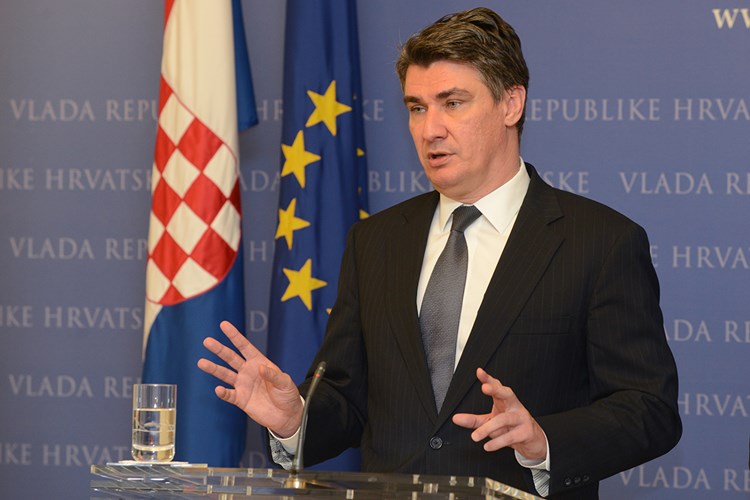Croatian Prime Minister Zoran Milanovic said in a letter to the European Commission on Thursday that there were no legal grounds to insist on arbitration to resolve the border dispute between Croatia and Slovenia and that therefore the Commission should not be actively involved in this or similar border disputes between EU member states.
Milanovic recalled that Croatia had withdrawn from the arbitration agreement because Slovenia had compromised the proceedings with deliberate, unlawful, immoral and unethical actions.
His letter was a response to one that the European Commission had sent to the governments of Croatia and Slovenia saying that it was interested in Zagreb and Ljubljana reaching a solution to their border dispute and emphasising that in its opinion arbitration was a good way to achieve that. The Commission expressed a wish that the two member states would resolve their border dispute because that would facilitate implementation of European legislation in all other member states.
We are confident that the Commission has no legal grounds to insist on arbitration in dealing with the border dispute between Croatia and Slovenia and therefore should not be actively involved in this or similar border disputes between member states. In that regard, I do not believe that any of these disputes affect the application of EU law, Milanovic said in his letter.
He went on to say that the Commission was very well informed of Croatia's position on the matter, both through written communication and a thorough explanation of First Deputy Prime Minister Vesna Pusic to EC Vice-President Frans Timmermans on September 1, that the arbitration process had been compromised and that the Croatian government, following a unanimous decision by the Croatian parliament, had launched a procedure to exit the arbitration agreement.
The entire proceedings, including all the evidence and deliberations of the arbiters, have been compromised by deliberate, unlawful, immoral and unethical actions by one party to the proceedings, which acted in collusion with its agent and arbiter. This party has tacitly admitted its actions because its protagonists have resigned and there has never been any denial. It is possible that through those actions criminal offences were also committed, Milanovic said in his letter to EC President Jean-Claude Juncker and Vice-President Frans Timmermans.
As a result, Croatia has withdrawn from the arbitration, it will not comment on possible intentions of the tribunal, will not participate in its work and will not consider itself compelled to receive or respond to any decision the tribunal may take, the letter says.
We still believe that the only decision the tribunal can take regarding the consequences of the actions by one party, and by acting in accordance with the highest legal, moral and ethical standards which the international justice system must uphold, is to dissolve itself, the Croatian PM concluded.
Milanovic recalled that as soon as Croatia had decided to withdraw from the arbitration agreement it had proposed to Slovenia that they immediately start searching for other ways of resolving their territorial dispute, an offer which was unfortunately rejected but which still stands. He expressed confidence that this was the only way to overcome the present impasse.
At the end of July, the Croatian parliament unanimously passed a resolution instructing the government to withdraw from the arbitration agreement with Slovenia after the Croatian daily Vecernji List found that Slovenian arbiter Jernej Sekolec and Slovenian government agent Simona Drenik had discussed the case and lobbied other judges to rule in favour of Slovenia. The two Slovenian representatives then resigned and Croatian arbiter Budislav Vukas resigned after the Croatian government decided to pull out of the compromised proceedings.
The Permanent Court of Arbitration has recently appointed Rolf Einar Fife of Norway to represent Slovenia and Nicolas Michel of Switzerland to represent Croatia in the border arbitration proceedings.
(Text: Hina)
News


